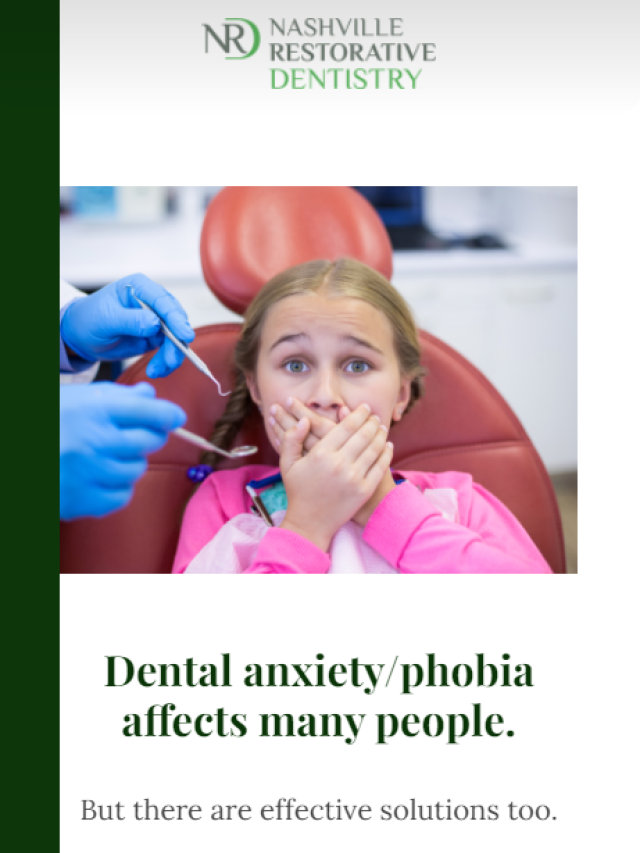Gum Disease Treatment in Nashville, TN
Gum disease is a common and often undiagnosed oral health issue that can lead to a number of other significant health problems.
- Between 50-75% of American adults, depending on age, have periodontal disease (ranging from mild to severe).
- Periodontal disease increases inflammatory markers throughout your entire body and significantly increases a patient’s risk of suffering from high blood pressure or even a stroke and/or heart attack.
- Diabetic control is severely inhibited by untreated periodontal infection, and diabetics are at a much higher risk of developing periodontal disease.
Modern research is constantly teaching us how interconnected the mouth and the rest of the body are. Part of our commitment to addressing the whole-body health of our patients is educating them on how interrelated gum disease is to many other systemic illnesses and risk factors. For example, the oral bacteria that cause gum disease have been found in the clots of both stroke and heart attack victims, showing they enter the bloodstream from diseased gum tissue and cause damage elsewhere in the body.
What Causes Gum Disease and How it's Treated

The two main components that we’re looking at when we’re evaluating what’s going on in your mouth that can negatively affect your overall health is gum disease and infected teeth. So Gum disease can have two different components: Gingivitis and Periodontitis. Gingivitis is reversible inflammation of your gum tissue that is caused by the bacteria and plaque. It creates inflammation which leads to bleeding, but it’s reversible which means we can make it go away and there’s no long term damage that’s taken place. Periodontal disease is where you’ve actually lost bone. That infection has progressed. It’s been more longstanding or more aggressive in its destruction. So when we look at X-rays of the teeth we see that bone levels have receded. So you’ve lost anchoring support that keeps your teeth stable.While that in and of itself is a concern, the bigger issue is that inflammation caused by the bacteria that creates the disease is entering your bloodstream. So whether it is gum disease, whether it is infected teeth that are actually abscessed, bacteria is at the root of all of that. The bacteria is getting into your circulatory system. So when you see all the headlines about how gum disease is connected to cardiovascular disease, heart attack risk, stroke risk, type 2 diabetes, certain types of cancer, Alzheimer’s disease, all the litany of research that is coming out right now is connected to how that infection is creating chronic inflammation and inflammation is the key to all of this. So treating gum disease is really about ridding our bodies of inflammation just as much as it is about making our mouths themselves healthier.
The ways to treat gum disease depend on which type of gum disease you actually have. Gingivitis is a reversible inflammation of the tissue that is really just based on plaque staying along the gum line. So, regardless of whether you’re using certain types of toothpastes or rinse, it really comes down to removing that biofilm consistently. As that plaque goes away, the tissue is going to heal, the inflammation is going to go away, the bleeding is going to stop and there won’t be a continued destructive nature to the disease. Gum disease that has transitioned into Periodontitis where we’ve seen bone destruction and attachment loss from the tissue, that treatment is going to be more involved. And there is different levels of severity of it, but more or less your treatment is going to consist of having in-office work done as well as what you’re doing at home. So in the office we’re using ultrasonics, lasers, ozonated water, different ways to disrupt the buildup of bacteria and biofilm below the guideline. At home, you’re going to be using electric toothbrushes, water picks, flossing, certain types of rinse or gel products that are usually going to contain an essential oil or be peroxide-based to be disrupting the bacteria while you’re in between visits. But the connection between your in-office and at-home recur program are going to be important because you can’t keep periodontal disease from being destructive just by going to the dentist. You can’t just do it at home. There’s got to be a teamwork focus between you and your dental care provider to keep that inflammatory process in remission so you’re not continuing to experience destruction of bone levels, bleeding of gum tissue or the inflammation that results from it.
Because it is so common, the infection and inflammation from untreated gum disease is one of the most studied connections between poor oral and overall health risks. We develop a detailed treatment plan to treat the source of the infection and a customized maintenance program to help you maintain health moving forward.
Healthier gums mean a healthier you.








